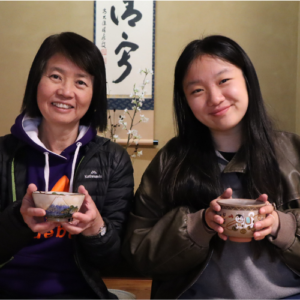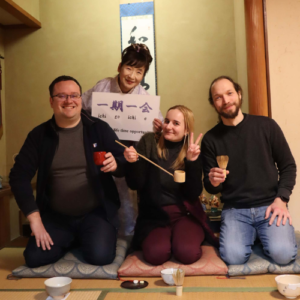Kyoto’s Timeless Elegance: A Birthday Tea Ceremony in Arashiyama
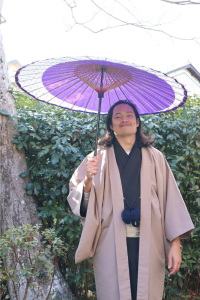
The doorbell rang a little before 3 PM, the time we had agreed on. When I opened the sliding door, I saw a man in a sophisticated dark purple kimono and a light purple haori, and a woman wearing a kimono with a beautiful, eye-catching design. They smiled at each other and then at me, saying hello. These were our guests, Ai Wen and her husband, Ivan.
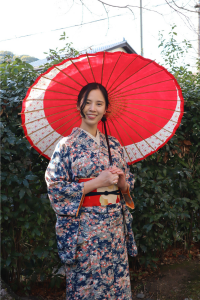
Their nationality is Malaysian. However, they currently reside in Singapore due to work. Ivan was born and raised in Malaysia, then married Ai Wen and later moved to Singapore. Ivan said, “Singapore is like Tokyo, with many buildings standing side by side and people bustling around. Malaysia has a Kyoto-like atmosphere.”
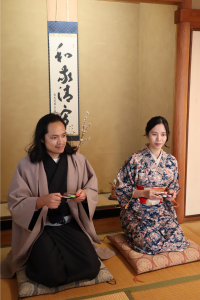
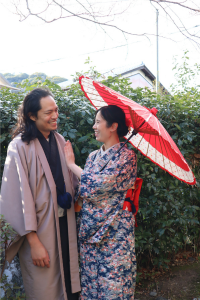
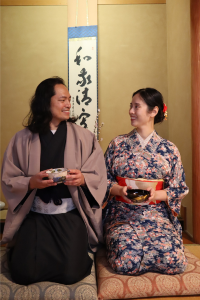
Two famous Malaysian specialties were introduced by Ivan. The first one is Bentong ginger. Bentong ginger is a type of ginger grown in the Bentong district of Pahang, Malaysia. It is said to have a stronger spiciness and a unique flavor compared to regular ginger. It is a popular ingredient in Malaysian cuisine, often used in dishes like stir-fries, soups, and curries. Bentong ginger is also used in traditional remedies and is believed to have various health benefits.
The other one is durian. As soon as she heard the word “durian”, Naoko exclaimed, “Isn’t that the fruit with a strong, pungent smell?” Neither Naoko nor I had ever eaten durian, but we knew it was a “smelly” fruit. Ivan said, “That’s right. It has a very strong odor. Many people dislike this smell. However, the bright yellow flesh has a creamy and rich texture, with an exquisite balance of sweetness and bitterness. The Musang King variety is the best.” He replied with a lively expression.
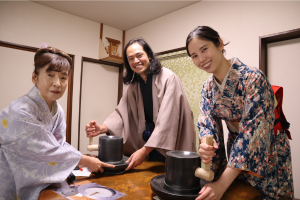
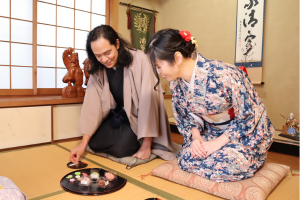
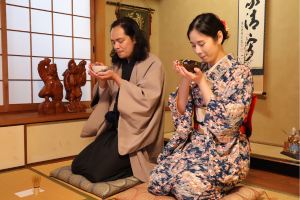
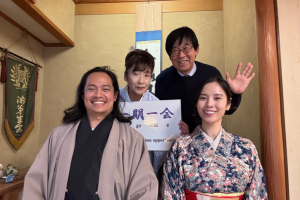
I’ve had questions about English education in Japan for a long time. Most Japanese, including me, can’t speak English fluently. In junior and senior high, we mostly studied grammar, and our English grades depended on our grammar knowledge. We barely had any listening or speaking practice. We only encountered English in class, and once we left, we never used it. We could get by just fine in Japanese. It was hard to find a reason to speak English. I asked Ivan, who grew up in multicultural Malaysia. “What language did you use in Malaysia?” “I spoke English with my Chinese friends. I even used English with my family.” I thought, “Really? Not Malay?” “But after marrying Ai Wen, I learned Cantonese,” he added. I thought, “Wow, the power of love!” So, Ivan speaks three languages: English, Cantonese, and Malay. He’s trilingual! Amazing! Maybe you can speak a language if you need it in your life? My wife, Naoko, and I now run tea ceremony workshops for tourists using English. It’s the only way to communicate here. So, I speak English because I have to, to share the tea ceremony. Maybe that’s the key to learning English? My English isn’t great for tourists yet, but I’m studying hard to make the workshops easier and more fun.
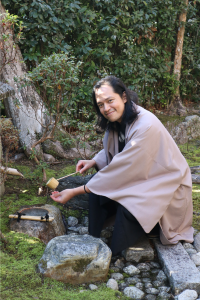
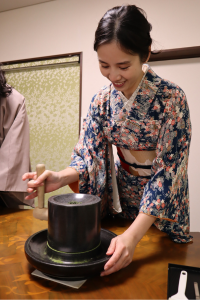
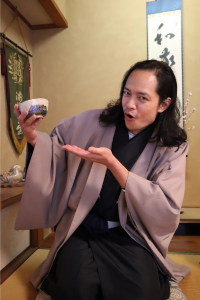
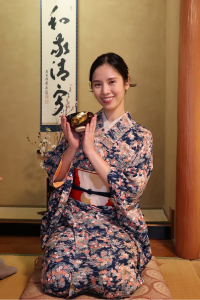
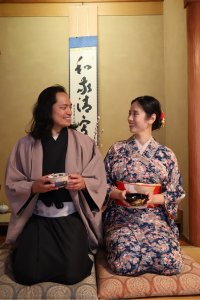
I asked Ivan and Ai Wen, who had arrived in Japan the day before, I inquired, “How many more days will you be staying in Japan?” “Six more days!” Ivan answered. “Our itinerary includes Kyoto, Nara, and Osaka.” Ai Wen chimed in with a smile, “In fact, this Japan trip is a birthday celebration for Ivan.”
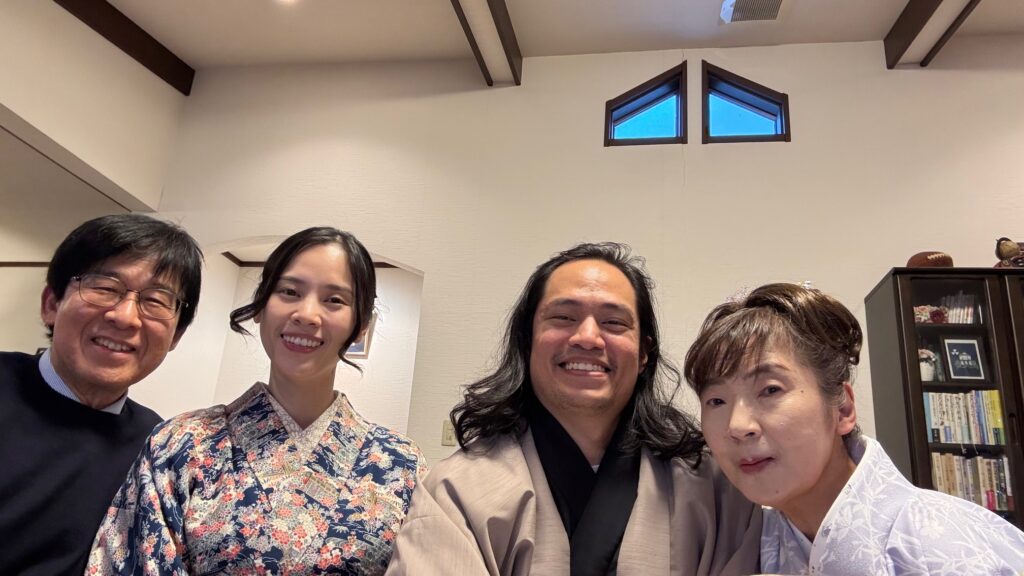
I’m so glad we were able to share the tea ceremony experience together today. Thank you for selecting Komurasaki An’s tea ceremony for this special birthday trip. May the remainder of your travels in Japan be filled with joy and unforgettable moments!
